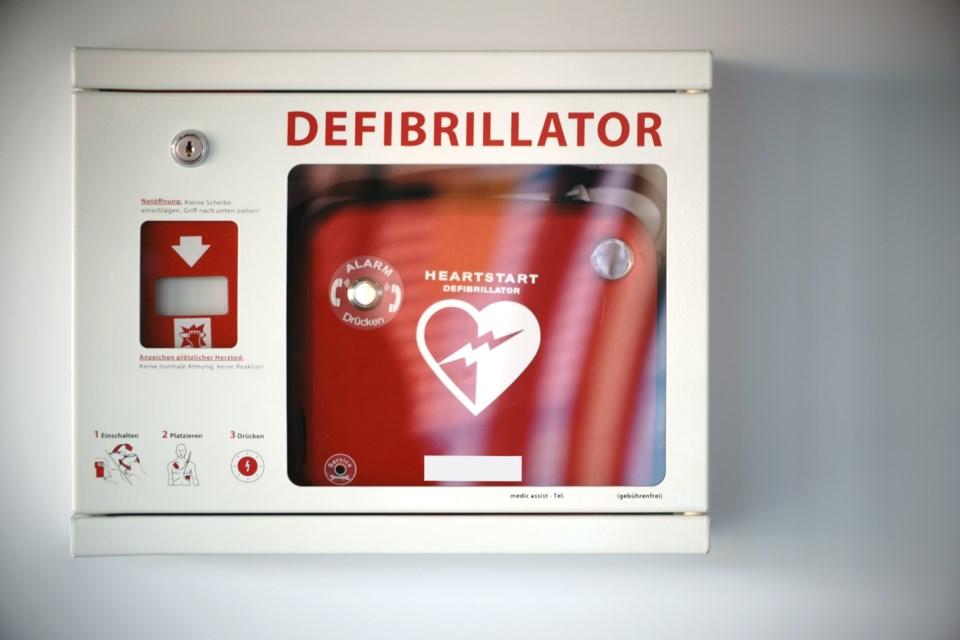In the past almost two decades, 51 lives have been saved thanks to the County of Simcoe Paramedics Services public access defibrillators (PAD) program.
This heartwarming fact was part of a presentation updating councillors on the county’s PAD program during Tuesday's committee of the whole meeting.
“It’s hard to believe … it has been running since 2005. It seems like we just started it, but I know it’s made a great impact,” said the county's chief administrative officer, Mark Aitken.
In Canada, 60,000 out-of-hospital cardiac arrests happen each year, Chantel Demers, the county's deputy chief of logistics, said during the presentation.
That is an “astronomical number” that keeps getting higher each year as the population ages, she noted, adding that nine out of 10 out-of-hospital cardiac arrests will result in death without immediate intervention.
“That’s where we really want to come into the picture with our PAD program,” Demers said.
Since the local program began, automated external defibrillators (AEDs) have been placed in arenas, schools, public buildings and community centres across the region.
Currently, there are more than 950 AEDs placed by the program across the county, as well as an additional 459 private sites registered with the PAD program and the local dispatch, Demers pointed out.
Having those devices in so many public places has ultimately resulted in dozens of lives being saved, she said.
“It has empowered visitors and residents of the County of Simcoe to play an active role in the chain of survival during sudden cardiac arrests,” Demers said. “The survival rates double if the early intervention and CPR is used. So it’s very, very impactful.
"That’s 51 people walking around when the odds were against them," she added.
Another positive impact of the PAD program is the training of more than 17,000 local residents in CPR and first-aid alone, Demers said.
In 2020, the government introduced Bill 141, which Demers explained means all defibrillators located in public spaces are registered through dispatch.
“If something happens, when 9-1-1 is called, the dispatcher can let the caller know where the closest device is," she said. "Information is power here. We know that early intervention of CPR and AED is beneficial to the patient … (and) that’s where Bill 141 comes in."
And the devices have obviously come in handy on more than just a few occasions.
“If it wasn't for people stepping out of their comfort zones to actually take a defib off the wall and start to do CPR, the person probably wouldn’t have had a chance at all,” said Kim Oxley, a public access defibrillator program co-ordinator with the county’s paramedic services.
Midland Mayor Bill Gordon applauded the program’s success, pointing to an occurrence in his own council chambers during a March 2023 meeting when Coun. Jim Downer slumped forward in his seat and appeared unconscious.
“We had our PAD have to be used in a council meeting this term for one of our councillors who went down right in the middle of a debate," Gordon said. "I think the credit probably goes to an embedded defibrillator he had, (but) the machine came off the wall. It needed to be there and people weren’t afraid to use it.”
Since that day, town staff across the municipality have undergone additional training on how to use the device, he added.
“These things work, they do save lives," Gordon said. "Maybe they won’t save lives 100 per cent of the time, but you can guarantee that 100 per cent of the time you don’t use them it’s a missed opportunity to save that life."
